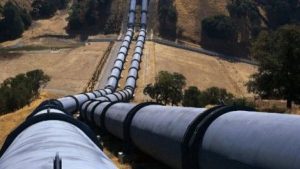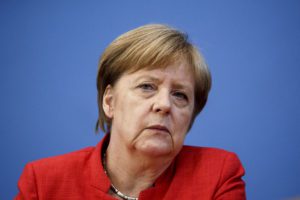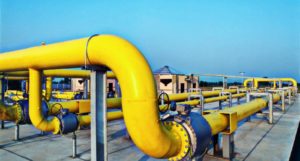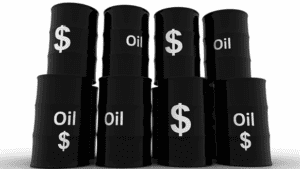
Oil transit through Ukraine to European countries in January 2020 decreased by 3.6% (by 40,000 tonnes) compared to the same period in 2019, to 1.057 million tonnes, JSC Ukrtransnafta has reported. The volume of oil transportation to oil refineries in the country in January 2020 amounted to 188,500 tonnes, which is 16% (26,100 tonnes) more than in January 2019.
Thus, in January 2020, the share of transit volume in the total transportation of oil (1.246 million tonnes) was 84.9%, the share of pumping to the country’s refineries was 15.1%.

Oil transit through Ukraine to European countries in 2019 decreased by 1.6% (by 208,200 tonnes) compared to the same period in 2018, to 13.127 million tonnes, JSC Ukrtransnafta has reported.
The volume of oil transportation to oil refineries in the country in 2019 amounted to 2.382 million tonnes, which is 13.4% (281,300 tonnes) more than in 2018.
Thus, in 2019, the share of transit volume in the total transportation of oil (15.509 million tonnes) was 84.6%, the share of pumping to the country’s refineries was 15.4%.
In December 2019, oil transit through Ukraine by pipelines decreased by 5.7% (by 69,700 tonnes) compared to the same month of 2018, to 1.160 million tonnes, while pumping to the country’s refineries increased by 18.1% (by 31,700 tonnes), to 207,100 tonnes

Ukraine in 2019 increased transit of natural gas through its gas transmission system (GTS) by 3.2% (by 2.807 billion cubic meters) compared to 2018, to 89.586 billion cubic meters, according to recent data from JSC Ukrtransgaz.
According to the calculations of the Interfax-Ukraine agency, in particular gas transit through the country to Europe last year amounted to 86.696 billion cubic meters (3.4% more from 2018), to Moldova some 2.890 billion cubic meters (1.7% less).
In December 2019, gas transit increased by 6.3% (by 479.8 million cubic meters) compared to the same month of 2018, to 8.092 billion cubic meters. In particular, gas transit through Ukraine to Europe amounted to 7.736 billion cubic meters (up by 7%), Moldova some 356.1 million cubic meters (7.2% less).

German Chancellor Angela Merkel welcomed the results of the gas talks between Ukraine and Russia, German government spokesperson Ulrike Demmer wrote on Twitter on December 31.
“I [Angela Merkel] am glad that the talks on the transit of Russian gas through Ukraine, which have been held for a year and a half, could now be successfully concluded,” reads Merkel’s statement posted by Demmer.
Merkel also noted that the continuation of gas transit through Ukraine from January 1, 2020 is “a good and important signal for ensuring our gas supply security in Europe.”
She thanked the Russian and Ukrainian governments, Vice-President of the European Commission Maroš Šefčovič, Germany’s Federal Minister for Economic Affairs and Energy Peter Altmaier and other participants for the successful results of the talks.
As reported, Russia’s Gazprom, NJSC Naftogaz Ukrainy, Gas Transmission System Operator of Ukraine LLC (GTSOU) and the Justice Ministry of Ukraine signed a package of documents that allow to continue gas transit via Ukraine after December 31, 2019, consistent with the protocol signed on December 20, 2019.
“Five days of continuous bilateral negotiations in Vienna have resulted in final decisions and final agreements. Also, the sides have signed a package of agreements and contracts as a big package deal, which restores balance of interests. The documents take effect today to ensure Russian gas transit via Ukraine after December 31, 2019,” Gazprom CEO Alexei Miller told the press.

Ukraine would receive income of $15 billion in five years of transit of Russian natural gas, according to Minister of Energy and Environment Protection of Ukraine Oleksiy Orzhel. “The approximate income with which Ukraine left this meeting [the meeting in Minsk on December 20, following which Ukraine-Russia-EC signed an intergovernmental protocol], is more than $3 billion for arbitration and approximately $3 billion for transit each year during five years,” the minister wrote in his column for the Ekonomichna Pravda (Economic Truth) publication on Tuesday.
“Thus, in five-year outlook, we will receive about $18 billion, of which $3 billion is ‘natural’ money – before the New Year. And this is without any enslaving conditions regarding the purchase of Russian gas,” Orzhel said.
At the same time, he said that at the meeting in Minsk the parties made significant progress, however, at present, the risk of not signing the new contract still exists.
“The protocol is not an agreement yet. In the last week of December, our companies will draft the text. But until the agreement itself has been signed, there is no transit. Can the other side change its mind at the last moment? Yes. Are we ready for this? Yes. But if this happens, Gazprom will suffer all image losses,” the minister added.

Oil transit through Ukraine to European countries in January-November 2019 decreased by 1.1% (by 138,400 tonnes) compared to the same period in 2018, to 11.967 million tonnes, according to data from JSC Ukrtransnafta. The volume of oil transportation to oil refineries in the country for the 11 months amounted to 2.175 million tonnes, which is 13% (249,600 tonnes) more than in the same period in 2018.
Thus, in January-November 2019, the share of transit volume in total oil transportation (14.142 million tonnes) amounted to 84.6%, the share of pumping to the country’s refineries some 15.4%.
In November 2019, oil transit through Ukraine by pipeline increased by 33.6% (by 334,700 tonnes) compared to the same month of 2018, to 1.330 million tonnes, pumping to the country’s refineries by 10.5% (by 19,700 tonnes), to 206,800 tonnes.